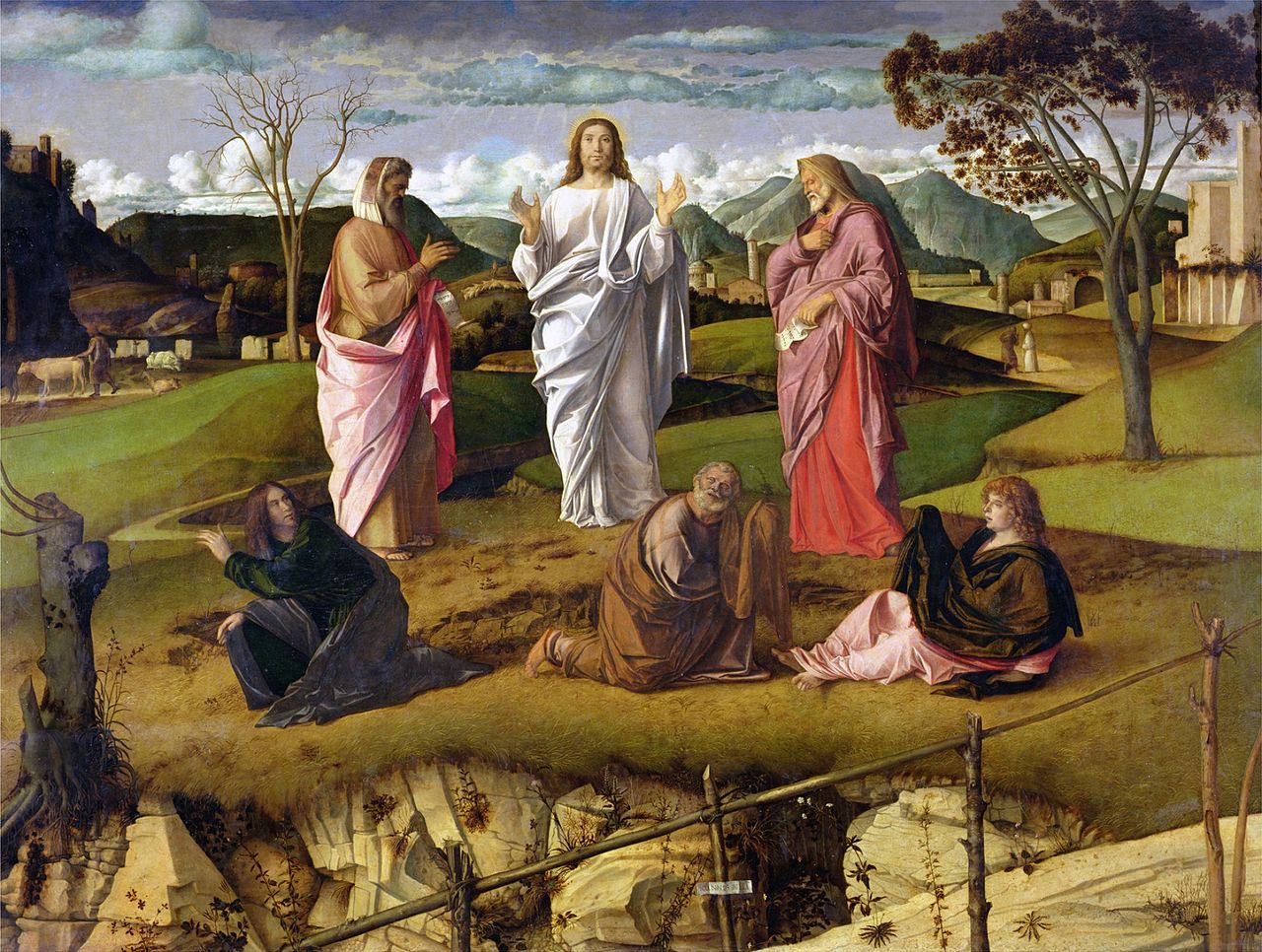“While
he was still speaking, suddenly a bright cloud overshadowed them, and
from the cloud a voice said, ‘This is my Son, the Beloved; with him
I am well pleased; listen to him.’” (Matthew
17:5)
I recently received a lovely gift from some friends. It’s a facsimile of what is called the “Jefferson Bible,” a rare volume from the Smithsonian Institute. The actual title which President Thomas Jefferson gave this document is The Life and Morals of Jesus of Nazareth. Mr. Jefferson, it seems, was greatly influenced by the eighteenth century philosophical movement called “The Enlightenment.” This movement attempted to make logic and reason the basis for all government and conduct. The disciples of the Enlightenment weren’t real big on religion, and neither was Jefferson. In his later years (sometime around 1819) he took a razor blade to the Gospels and cut-and-pasted his own version of the life of Jesus, removing all references to miracles or divinity—including the resurrection.
 |
| The Transfiguration as painted by Giovanni Bellini, 1490 |
I recently received a lovely gift from some friends. It’s a facsimile of what is called the “Jefferson Bible,” a rare volume from the Smithsonian Institute. The actual title which President Thomas Jefferson gave this document is The Life and Morals of Jesus of Nazareth. Mr. Jefferson, it seems, was greatly influenced by the eighteenth century philosophical movement called “The Enlightenment.” This movement attempted to make logic and reason the basis for all government and conduct. The disciples of the Enlightenment weren’t real big on religion, and neither was Jefferson. In his later years (sometime around 1819) he took a razor blade to the Gospels and cut-and-pasted his own version of the life of Jesus, removing all references to miracles or divinity—including the resurrection.
The
story of the Transfiguration (Matthew 17:1-9) didn’t make the cut—literally!—in Jefferson’s Bible. A
glowing Jesus on the mountaintop, a heavenly voice from a shining
cloud, and the miraculous appearance of two long-dead prophets was
not something which an enlightened fellow like our third president
could buy into. According to Mr. Jefferson, things like this simply
don’t happen. They are fairy tales which corrupt the story of a
great human being and moral teacher.
I
grant it’s awfully hard to make sense of this story which closes
out the season of Epiphany. The Transfiguration might seem to us more
like a TV commercial for Tide or Oxyclean than an insight into our
relationship with Jesus. Perhaps we’re taking the story of this
festival day a little too much like Mr. Jefferson did. That is, we’re
so hung up on the literal impossibility of it that we miss its poetic
message. Maybe the enlightened Mr. Jefferson (and history proves he
was pretty darned enlightened—just look at the Declaration of
Independence!) approached the story with too narrow a mindset.
What
if the story wasn’t meant to be taken literally, but was an
expression of how the three disciples—Peter, James, and
John—experienced Jesus during that prayer retreat on the
mountaintop? What could the glowing face and the dazzling white
clothing represent? Purity? Glory? What if they saw beyond the
earthly reality of their peasant teacher and glimpsed the total
goodness of God? The dusty sandals, the sweat-stained carpenter’s
clothing, the sunburned face, the hands calloused and dirty from
climbing among the rocks disappeared from their vision and they saw
their friend Jesus only as the embodiment of God’s love and
holiness. Think of the love and awe they must’ve felt when they
realized what he meant to them.
Think,
too, of how they saw their identity realized in Jesus. Here was the
man who actually lived in fulfillment of their law which Moses gave
to their ancestors and the zeal of their prophets symbolized by
Elijah. In Jesus they found all of their heroes manifested in one
calm, wise, loving, healing, and passionate presence. It must’ve
been a revelation so inspiring as to be actually frightening.
Have
you ever felt that way?
I’m
sorry Mr. Jefferson eliminated this story from his Bible. The ray of
light which never shined on the Enlightenment was the truth that
logic and reason do not run our world, and they never have. We are so
much ruled by our feelings and emotions. But in the dense fog that is
our lives—in the struggle to understand who we are and what we’re
here to do—we need to use our hearts as well as our brains. And if
we’re to be passionate about anything, let’s be passionate about
Jesus. His is the only light which pierces our darkness. If we’re
to understand anything at all it is because we heeded the words,
“Listen to him.”
Thanks for reading, my friends. Keep looking beyond for the light of Christ.
No comments:
Post a Comment